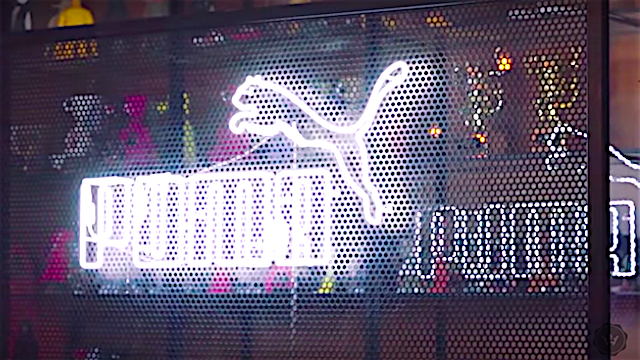Outlining a survival strategy for the coronavirus pandemic, Puma says its global operations are split into three phases: Survive, Recover and Grow Again.
The sportswear retailer and manufacturer reported a 1.3-per-cent decrease in first-quarter sales to €1.3 billion, with strong growth during the first 10 weeks undermined by the widening impact of the pandemic. Net earnings fell 61.6 per cent to €36.2 million.
However in the current quarter, global revenue is running at about 50 per cent of normal levels.
CEO Bjorn Gulden said the year started very well with a great order book, strong sell-through and record retail numbers. “Then, at the end of January, the Covid-19 virus hit China. Since then we have worked to minimise the damage short-term without hindering the mid-term momentum of Puma.
“The different markets are at different stages. Asia Pacific with China and South Korea is recovering. Europe is hopefully also moving towards recovery while the Americas, with almost all stores closed, are in the middle of the Survive phase.”
Describing the first quarter as “difficult,” he believed Puma had done “a decent job”.
“The second quarter will financially be even worse with more than 50 per cent of global sports and sports lifestyle space being closed. We are mitigating the impact on our revenues wherever we can by focusing on e-commerce and the markets that are opening up again. We are working with our factories and other partners in our supply chain to minimise the damage, assure timely deliveries, avoid excess stock as much as possible and to find fair solutions for all of us.”
Puma has secured a €900 million revolving credit facility to tide it over the crisis and has asked all partners to get additional financing to ensure operations can continue.
“The goal is to get through this without any Puma employee losing their job. To survive this crisis in cooperation with all our partners such as retailers, suppliers, landlords, financial institutions, authorities, investors, and customers is crucial. We can only get through this together. So far, cooperation with most of them has been great.”
Puma’s gross profit margin declined by 140 basis points to 47.6 per cent, during the first quarter, impacted by negative currency valuation, lower China sales, inventory devaluation and return provisions.
The almost complete shutdown of China retail from the last week of January caused the most damage to Puma’s sales and profitability during the quarter.
“Over the [ensuing] six weeks, the whole business in China, except for e-commerce, basically disappeared,” the company said in a statement. “As China started to recover in mid-March, Covid-19 had started to spread globally and by the end of the month basically 80 per cent of Puma’s retail doors, both owned and operated as well as partner stores, were closed.”
A significant challenge for Puma going forward is the inventory levels resulting from the lack of trading. Total inventory value is up 24.5 per cent to €1.13 billion.
However the company has struck a positive note on its mid-term prospects. Sales in China and South Korea are already improving and the first stores are reopening in some European markets. Offsetting that is the almost full shutdown in the Americas. While e-commerce sales are rising, it is not at a pace that can compensate “in any way” for the declining sales across other channels, the company said.
While short-term prospects are not bright, the company said it is committed to managing the crisis in the short term “without hindering the midterm momentum”.
“This year is, and will continue to be, a difficult year, where the goal for Puma is to survive, recover and then emerge stronger with growth again. Different markets will go through these phases at different times and execution, therefore, must be very locally driven,” the company said.
Puma expects all markets to recover by the year’s end and to return to growth next year.
“The industry is expected to be in a strong position after the crisis. People have already now started doing more sports wherever it is possible, even under difficult circumstances. There are many indications that health and sports will be even more important than before the crisis.”






